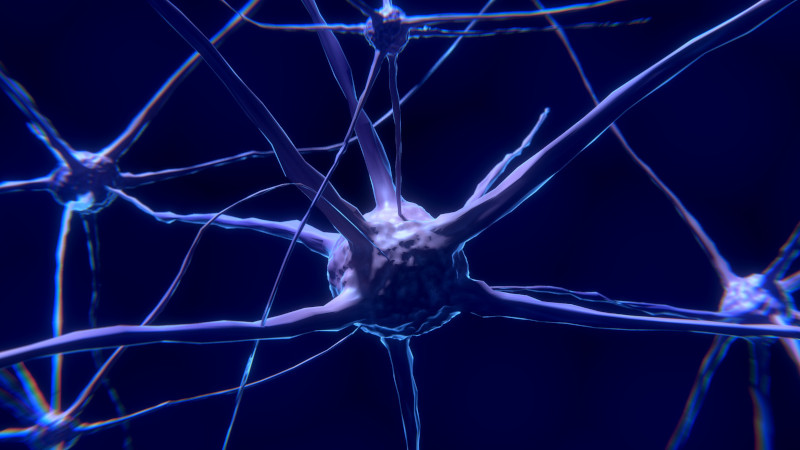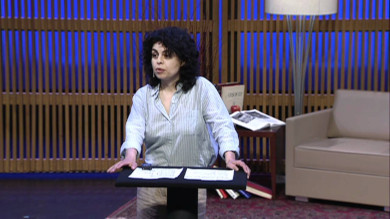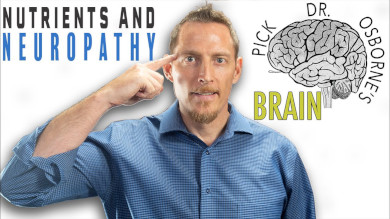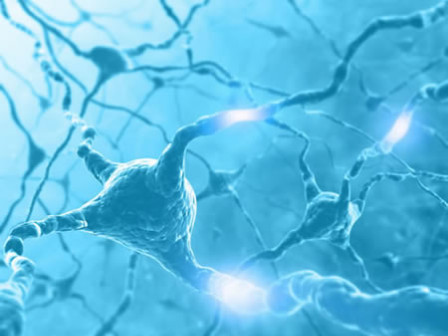Article from Issue #34 (June 7, 2021)
Functional Neurological Disorder
by NORD

Source: National Organization for Rare Disorders (NORD)
Functional Neurological Disorder
NORD gratefully acknowledges Jon Stone MB, ChB, PhD, Consultant Neurologist, Co-director Functional Disorders Research Group, University of Edinburgh, UK; Tim Nicholson, Honorary Consultant Neuropsychiatrist, South London & Maudsley NHS Foundation Trust and Kings College Hospital NHS Foundation Trust, London, Clinical Senior Lecturer in the Section of Cognitive Neuropsychiatry, Institute of Psychiatry Psychology & Neuroscience, King’s College London; and Bridget Mildon, President/CEO FND Hope, Inc., for the preparation of this report.
Synonyms of Functional Neurological Disorder
- functional neurological symptom disorder
- functional movement disorder
- conversion disorder
- psychogenic seizures / movement disorder
- dissociative seizures / motor disorder
- non-epileptic seizures
- FND
General Discussion
Functional neurological disorder (FND) is a medical condition in which there is a problem with the functioning of the nervous system and how the brain and body sends and/or receives signals, rather than a structural disease process such as multiple sclerosis or stroke. FND can encompass a wide variety of neurological symptoms, such as limb weakness or seizures.
FND is a condition at the interface between the specialties of neurology and psychiatry. Conventional tests such as MRI brain scans and EEGs are usually normal in patients with FND. This had led, historically, to the condition being relatively neglected by both clinicians and researchers. However, it is now established that FND is a common cause of disability and distress, which may overlap with other problems such as chronic pain and fatigue. Encouraging studies support the potential reversibility of FND with specifically tailored treatments. New scientific findings are influencing how patients are diagnosed and treated which is creating an overall change in attitude towards people with FND.
Older ideas that FND is “all psychological” and that the diagnosis is made only when someone has normal tests have changed since the mid-2000s. The new understanding, including modern neuroscientific studies, has shown that FND is not a diagnosis of exclusion. It has specific clinical features of its own and is a disorder of the nervous system functioning in which many perspectives are necessary. These vary a lot from person to person. In some people, psychological factors are important, in others they are not.
Signs & Symptoms
FND patients can experience a wide range and combination of symptoms that are physical, sensory and/or cognitive. The most common include:
Motor dysfunction
- Functional limb weakness/paralysis
- Functional movement disorders; including tremor, spasms (dystonia), jerky movements (myoclonus) and problems walking (gait disorder)
- Functional speech symptoms; including whispering speech (dysphonia), slurred or stuttering speech
Sensory dysfunction
- Functional sensory disturbance includes altered sensation; e.g. numbness, tingling or pain in the face, torso or limbs. This often occurs on one side of the body
- Functional visual symptoms; including loss of vision or double vision
Episodes of altered awareness
- Dissociative (non-epileptic) seizures, blackouts and faints: these symptoms can overlap and can look like epileptic seizures or faints (syncope)
Symptoms often fluctuate and may vary from day to day or be present all the time. Some patients with FND may experience substantial or even complete remission followed by sudden relapses of symptoms.
Other physical and psychological symptoms are commonly experienced by patients with FND but may not be present. These include: chronic pains, fatigue, sleep problems, memory symptoms, bowel and bladder symptoms, anxiety and depression.
Causes
The exact cause of FND is unknown, although ongoing research is starting to provide suggestions as to how and why it develops. Many different predisposing factors can make patients more susceptible to FND such as having another neurological condition, experiencing chronic pain, fatigue or stress. However, some people with FND have none of these risk factors.
At the time FND begins, studies have shown that there may be triggering factors like a physical injury, infectious illness, panic attack or migraine which can give someone the first experience of the symptoms. These symptoms normally settle down on their own. However, in FND the symptoms become ‘stuck’ in a ‘pattern’ in the nervous system. That ‘pattern’ is reflected in altered brain functioning. The result is a genuine and disabling problem, which the patient cannot control. The aim of treatment is to ‘retrain the brain’, for example by unlearning abnormal and dysfunctional movement patterns that have developed and relearning normal movement.
One way of thinking about FND is looking at it as a bit like a ‘software’ problem on a computer. The ‘hardware’ is not damaged but there is a problem with the ‘software’ and so the computer doesn’t work doesn’t work properly. Conventional structural MRI brain scans are usually normal in FND unless the person has another neurological condition. Functional’ brain scans (fMRI) are starting to provide early evidence for how the brain goes wrong in FND. fMRI scans show changes in patients with FND which look different from healthy patients without these symptoms as well as healthy people ‘pretending’ to have these symptoms. Functional imaging is still a research tool and is not developed enough to be used in the diagnosis of FND. Scans support what patients and researchers already know – these are genuine disorders in which there is a change in brain functioning, which is out with the control of the person with FND.
Historically, FND has traditionally been viewed as an entirely psychological disorder in which repressed psychological stress or trauma gets ‘converted’ into a physical symptom. This is where the term ‘conversion disorder’ comes from. Psychological disorders and stressful life events, both recent and in childhood, may be risk factors for developing the condition in some patients, but they rarely provide a full explanation for the cause of the condition and are absent in many patients. Patients do not have to be depressed, anxious or the survivor of adverse childhood experience to develop FND.
Modern theories propose that FND has many causes, which vary from patient to patient. One comparison is to think about heart disease. There are lots of causes of heart disease – smoking, genetic factors, diet and even stress-related / psychological factors such as depression. Smoking may be a factor in heart disease in many people, but it is not in everyone. The same analogy can be made for FND. In some psychological factors such as past trauma or stress at the time of symptom onset in FND are important in understanding how the brain has gone wrong. In others the presence of a problem like migraine or a physical injury may be the most important thing.
Affected Populations
The exact prevalence of FND is unknown. However, research suggests FND is the second most common reason for a neurological outpatient visit after headache/migraine; accounting for one sixth of diagnoses. This means FND is as common as multiple sclerosis or Parkinson’s disease.
FND can affect anyone, at any time, although it is uncommon in children under 10. FND is more likely to affect women than men for most symptoms, although when patients present over the age of 50 then it occurs equally in both groups.
Related Disorders
It is common for FND to co-exist with other illnesses. FND can have similar symptoms to most other types of condition seen in neurological practice such as multiple sclerosis, stroke and epilepsy. Some patients have both a neurological disease diagnosis such as stroke and FND. A neurologist is normally required to assess which symptoms relate to FND and to monitor where required for any new symptoms.
Anxiety and depression can sometimes cause physical symptoms which overlap with FND symptoms. For example, panic attacks can present with symptoms such as pins and needles in the fingers or mouth and depression often causes poor concentration or fatigue. Anxiety and depression are common in patients with FND but many patients do not have such problems.
Chronic pain is also common in patients with FND including fibromyalgia, which is also related to disturbed nervous system functioning. Pain disorders are also usually associated with fatigue, sleep disturbance, and poor concentration. Migraine and chronic headaches are also common.
Other functional disorders including irritable bowel syndrome, or overactive bladder syndrome are more common in patients with FND.
It is important that new symptoms not automatically be considered functional and other causes are considered and investigated as appropriate.
Diagnosis
FND is diagnosed on the basis of positive physical signs, and usually requires a neurologist or a doctor familiar with neurological diagnosis. Some examples of these signs are:
- Hoover’s test is for of functional leg weakness – the patient may have difficulty pushing their “bad” leg down (hip extension), but when they are asked to lift up their “good” leg, movement in the “bad” leg returns transiently to normal.
- The tremor entrainment test for functional tremor – this is when the shaking of an arm or leg becomes momentarily better when the person concentrates on copying a movement that the examiner makes.
- Dissociative (non-epileptic) seizures can often be recognised by a trained health professional using a combination of typical features such as: an episode of violent limb thrashing in which the eyes remain closed, side-to-side head movements, or an event lasting longer than 5 minutes where the eyes are closed, hyperventilation during a shaking attack or tearfulness on recovery.
Standard Therapies
Overview
FND can be hard to understand and most people haven’t heard of it.
Treatment should start with a clear and supportive explanation of the
positive clinical features that have allowed the diagnosis to be made,
even though scans and other laboratory tests may be normal.
When it goes well, understanding the diagnosis enables the patient to see that they have a genuine and relatively common condition which has the potential for improvement over time. This creates a foundation for treatment to build upon. Written information, like that available at www.neurosymptoms.org or www.fndhope.org may help individuals comprehend this complex and difficult to understand disorder.
Evidence is now emerging for the efficacy of certain treatments, especially physiotherapy for motor symptoms and a type of psychological therapy called cognitive behavioral therapy (CBT) for attacks or seizures. Specialized types of physiotherapy and CBT have been developed for FND. Other therapies such as speech therapy and occupational therapy may also have a role depending on the symptoms.
Physical Therapy
For patients with motor symptoms such as limb weakness, gait problems
or movement disorder, physical therapy from a therapist who understands
something of FND can be helpful. Physiotherapy approaches are active
treatments that focus on retraining movement patterns that have gone
wrong. There is some evidence from clinical trials that physiotherapy
designed specifically for FND can be helpful for some patients. In
recent years we have learned that physical therapy for FND is different
from that used for stroke or MS in many ways. For example, patients with
stroke benefit from being asked to focus on the affected body part,
whereas in FND that tends to make things worse. Physical therapy for FND
promotes ‘automatic movements’ and reduces the abnormal brain patterns
that have been interfering with movement.
Psychological Therapies
CBT is generally the first line of treatment for patients with
dissociative (non-epileptic) seizures or attacks as part of their FND
and is supported by clinical trials. Therapy includes time to learn more
about their attacks and recognizing brief warning symptoms and learning
techniques to regain control. For some patients it is helpful to look
more widely at thoughts, emotions, and experiences that could have
played a role in the development of symptoms. For those patients without
anxiety and depression, psychological therapy may still be useful in
regaining confidence. FND itself is often experienced as a stressful
condition to manage and live with. Other types of psychological
therapies can also be used depending on the individual patient, e.g.
psychodynamic interpersonal therapy (PIT) or more trauma-focused work
for patients who have had such experiences.
Occupational Therapy
Occupational Therapy assists patients in finding adaptations and
regaining confidence in their ability to carry out daily activities in
the home or workplace. Occupational therapy can help build on other
therapies to contribute to a better overall quality of life.
Speech Therapy
For patients with speech symptoms as part of FND, speech therapy is an
important part of treatment. Like physical therapy, the approach is
different from that used, for example, after a stroke and patients
benefit from seeing therapists confident in this area.
Other Therapies
There is no research-based evidence that any specific medication is
beneficial for FND, but medications may be useful for other symptoms
commonly occurring with FND such as pain, migraine or anxiety. Other
therapies are being investigated in research studies
Not everyone with FND can benefit from treatment even if they do understand their condition and are well motivated.
Investigational Therapies
Information on current clinical trials is posted on the Internet at www.clinicaltrials.gov. All studies receiving U.S. Government funding, and some supported by private industry, are posted on this government web site.
For information about clinical trials being conducted at the NIH Clinical Center in Bethesda, MD, contact the NIH Patient Recruitment Office:
Tollfree: (800) 411-1222
TTY: (866) 411-1010
Email: prpl@cc.nih.gov
Some current clinical trials also are posted on the following page on the NORD website:
https://rarediseases.org/for-patients-and-families/information-resources/news-patient-recruitment/
For information about clinical trials sponsored by private sources, contact:
www.centerwatch.com
For information about clinical trials conducted in Europe, contact:
https://www.clinicaltrialsregister.eu/
Supporting Organizations
- FND Hope
- P O Box 783
- Salmon, ID 83467 USA
- Phone: (208) 756-7093
- Email: contact@fndhope.org
- Website: https://fndhope.org/
- Genetic and Rare Diseases (GARD) Information Center
- PO Box 8126
- Gaithersburg, MD 20898-8126
- Phone: (301) 251-4925
- Toll-free: (888) 205-2311
- Website: http://rarediseases.info.nih.gov/GARD/
References
BOOKS
Hallett M, Stone J, Carson A (eds. . Functional Neurologic Disorders:
Handbook of Clinical Neurology (Volume 139). Amsterdam: Elsevier 2016.
Schacter S, LaFrance Jr WC. Gates and Rowan’s Nonepileptic Seizures – 3rd Edition. Cambridge: Cambridge University Press 2010.
JOURNAL ARTICLES
Nielsen G, Buszewicz M, Stevenson F, et al. Randomised feasibility
study of physiotherapy for patients with functional motor symptoms. J
Neurol Neurosurg Psychiatry 2017;88:484–90.
Brown RJ, Reuber M. Towards an integrative theory of psychogenic non-epileptic seizures (PNES). Clin Psychol Rev. 2016;47:55–70.
Nielsen G, Stone J, Matthews A, et al. Physiotherapy for functional motor disorders: a consensus recommendation. J Neurol Neurosurg Psychiatry 2015;86:1113–9.
Jordbru AA, Smedstad LM, Klungsøyr O, et al. Psychogenic gait disorder: A randomized controlled trial of physical rehabilitation with one-year follow-up. J Rehabil Med. 2014;46:181–7.
Edwards M, Bhatia K. Functional (psychogenic) movement disorders: merging mind and brain. Lancet Neurol. 2012;11:250–60.
Goldstein LH, Chalder T, Chigwedere C, et al. Cognitive-behavioral therapy for psychogenic nonepileptic seizures: a pilot RCT. Neurology 2010;74:1986–94.
INTERNET
Functional and Dissociative Neurological Symptoms: a patient’s guide.
Free website with self-help information about all aspects of FND.
Written by Dr. Jon Stone, Neurologist, Edinburgh, UK http://www.neurosymptoms.org/
Accessed March 14, 2018.
Non-Epileptic Attacks. Free website with self-help information about dissociative (non-epileptic) attacks. Written by Prof. Markus Reuber, Neurologist, Sheffield, UK http://www.nonepilepticattacks.info/ Accessed March 14, 2018.
Years Published
1990, 1999, 2003, 2018
The information in NORD’s Rare Disease Database is for educational purposes only and is not intended to replace the advice of a physician or other qualified medical professional.
The content of the website and databases of the National Organization for Rare Disorders (NORD) is copyrighted and may not be reproduced, copied, downloaded or disseminated, in any way, for any commercial or public purpose, without prior written authorization and approval from NORD. Individuals may print one hard copy of an individual disease for personal use, provided that content is unmodified and includes NORD’s copyright.
National Organization for Rare Disorders (NORD)
55 Kenosia Ave., Danbury CT 06810 • (203)744-0100


 Top 10 Tips to Keep Your Brain Young
Top 10 Tips to Keep Your Brain Young Nutrients and Neuropathy
Nutrients and Neuropathy Healing Your Neurological System
Healing Your Neurological System